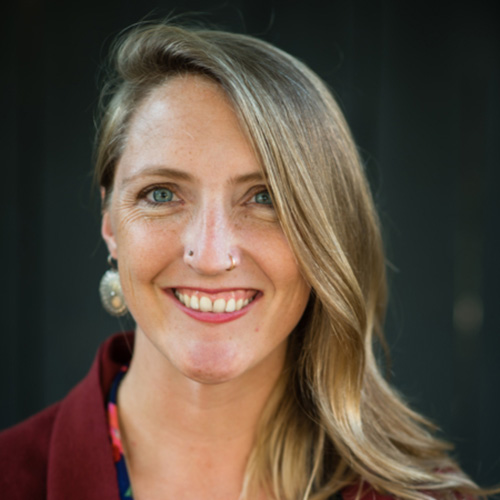Time is Ticking!
Day(s)
:
Hour(s)
:
Minute(s)
:
Second(s)
Take a Class for Half Off
Register and pay by June 30 for 50% off tuition
Some exclusions apply.
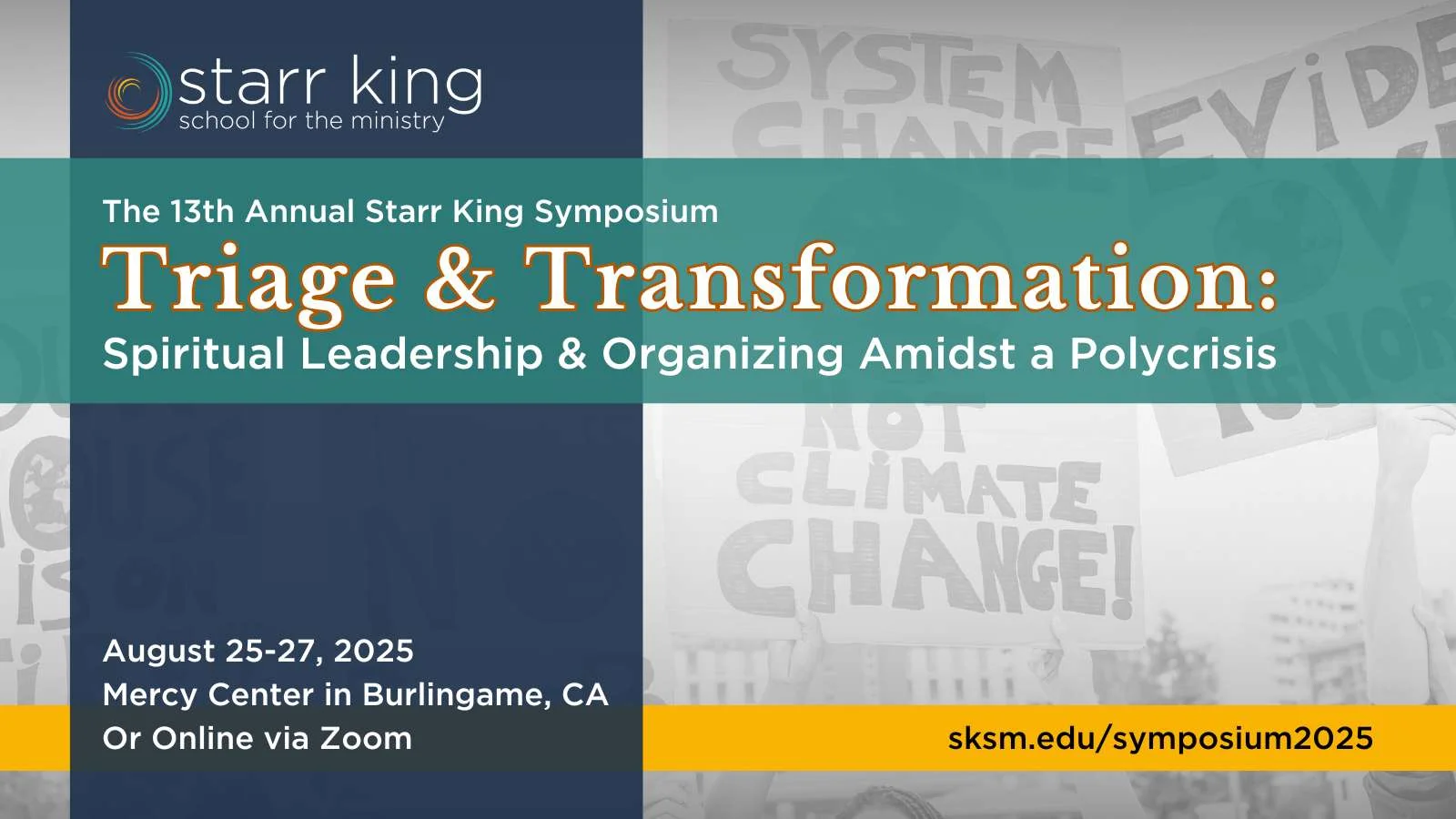
For the third year, we continue our experiment in offering multi-locational, hybrid education, structuring a program that supports the full participation of persons who may gather either in person or online. The program will feature a variety of contributing presenters and workshop leaders, rather than a single Honored Teacher.
Join us for the 13th annual Starr King Symposium as we explore the shape of religious and social leadership amidst a polycrisis of sociopolitical, cultural, economic, and climatic disruption. Because we cannot wait for government or business to enact responsible change, we must cultivate and organize our own capacities of spiritual grounding, resilience, and mutual care. Gathering together in hybrid community, we will find guidance and inspiration in expert teachers, practitioners, and one another, and will begin to develop action plans to meet the challenges ahead.
Our program will focus on community self-organizing to build resilience and the roles to be played by congregational ministers, chaplains, and social-change leaders. Topics and skill areas may include spiritual grounding, conflict resolution, solidarity creation, and other rituals and practices that will be vital in challenging times.
Symposium participants will have three options for program attendance:
IN-PERSON REGISTRATION ENDS ON MONDAY, JULY 21, AT 12:00 AM PT.
Registration for summer and fall courses is open now – students can register for the Symposium session that reflects their attendance plans (Online or California).
For students who are attending in person at Mercy Center, the cost of room and board will be 50% subsidized by Starr King. Physical attendees must register in Populi by July 21 and will be billed $200 for their stay at the retreat center.
3:00 pm PT/6:00 pm ET – In-Gathering Worship
4:00 pm PT/7:00 pm ET – When No Thing Works
5:30 pm PT – Dinner (Mercy Center)
7:30 am PT – Breakfast (Mercy Center)
9:00 am PT/12:00 pm ET – Preparing for Polycrisis
10:00 am PT/1:00 pm ET – Practicing Mutual Aid
11:00 am PT/2:00 pm ET – Praxis Circle: Fostering Resilient Religious Communities
12:00 pm PT – Lunch (Mercy Center)
1:30 pm PT/4:30 pm ET – Praxis Circle: Chaplaincy in Disruptive Times
3:00 pm PT/6:00 pm ET – What Webs Require: Conflict Engagement Beyond Purity and Punishment
4:30 pm PT/7:30 pm ET – Praxis Circle: Organizing Towards Transformation
5:30 pm PT – Dinner (Mercy Center)
7:30 am PT – Breakfast (Mercy Center)
9:00 am PT/12:00 pm ET – Small Group Dialogues
10:00 am PT/1:00 pm ET – Reflecting in the Spirit
11:30 am PT/2:30 pm PT – Closing Ritual
12:00 pm PT – Lunch (Mercy Center)
1:00 pm PT – Check-Out (Mercy Center)
Monday, August 25
3:00 pm PT/6:00 pm ET - In-Gathering Worship
4:00 pm PT/7:00 pm ET – When No Thing Works
5:30 pm PT – Dinner (Mercy Center)
Tuesday, August 26
7:30 am PT – Breakfast (Mercy Center)
9:00 am PT/12:00 pm ET – Preparing for Polycrisis
10:00 am PT/1:00 pm ET – Practicing Mutual Aid
11:00 am PT/2:00 pm ET – Praxis Circle: Fostering Resilient Religious Communities
12:00 pm PT – Lunch (Mercy Center)
1:30 pm PT/4:30 pm ET – Praxis Circle: Chaplaincy in Disruptive Times
3:00 pm PT/6:00 pm ET – What Webs Require: Conflict Engagement Beyond Purity and Punishment
4:30 pm PT/7:30 pm ET – Praxis Circle: Organizing Towards Transformation
5:30 pm PT – Dinner (Mercy Center)
Wednesday, August 27
7:30 am PT – Breakfast (Mercy Center)
9:00 am PT/12:00 pm ET – Small Group Dialogues
10:00 am PT/1:00 pm ET – Reflecting in the Spirit
11:30 am PT/2:30 pm PT – Closing Ritual
12:00 pm PT – Lunch (Mercy Center)
1:00 pm PT – Check-Out (Mercy Center)
Our shared learning begins on Monday evening with an interview and conversation with Norma Wong, a Zen teacher, community leader, and author of When No Thing Works: A Zen and Indigenous Perspective on Resilience, Shared Purpose, and Leadership in the Timeplace of Collapse. Norma’s invitation to “live into a story beyond crisis and collapse” will set the stage for our conversations and creativity throughout the rest of Symposium.
The nurture of human flourishing in this unfolding polycrisis will require the intentional preparation of religious and social leaders to tend the wounds and cultivate the collective wisdom of the communities they serve. Our three praxis circles during Symposium will feature practitioners in the fields of congregational ministry, chaplaincy, and community organizing. Each will reflect on how their understanding and embodiment of their vocation is shifting to respond to the present moment. The circle will then invite all participants to voice their ideas, their personal experiences, their hopes, and their questions about leadership in an unfolding crisis.
The three praxis circles and their featured practitioners are:
Fostering Resilient Religious Communities – Clergy partners of SKSM
Chaplaincy in Disruptive Times – Alison Cornish and Barb Greve
Organizing Towards Transformation – Larry Norris, Tovis Page, and Mari Rose Taruc
Conflicts are hard. Conflicts in a polycrisis are harder. This session explores how a theology rooted in interdependence can help us outgrow our internalized beliefs about and approaches to conflict. We will explore how a visceral sense of entanglement with the world widens us beyond a dominant culture posture fixated on good and bad, pure and punished. This workshop invites us to take interdependence seriously and see what is possible when we do: a deeper and wider capacity for creativity and response-ability to all life in the presence of the uncertainties ahead.
Pastor Jacqueline Duhart will open a space for spiritual grounding, tending to our feelings, and holding one another in love as we commit ourselves to the work that is before us.
Norma Wong (Norma Ryuko Kawelokū Wong Roshi) is a Native Hawaiian and Hakka life-long resident of Hawaiʻi. She is the abbot of Anko-in, an independent branch temple of Daihonzan Chozen-ji and serves practice communities in Hawai‘i, across the continental U.S., and in Toronto, Canada. She is an 86th generation Zen Master, having trained at Chozen-ji for over 40 years.
In earlier years, Wong served as a Hawai‘i state legislator and on the policy and strategy team for Governor John Waihee with federal and Native Hawaiian portfolios. She was active in electoral politics for over thirty years. In recent years, Wong has been called back into service to facilitate breaking the impasse and transforming policy and governance. Norma has spent many years in the applied space – the direct application of indigenous and Zen ways, values and practices to living and transformational change critical to our times. When No Thing Works, Norma’s first book, was published in November 2024 by North Atlantic Press. Norma is part of the Collective Acceleration community of practice.
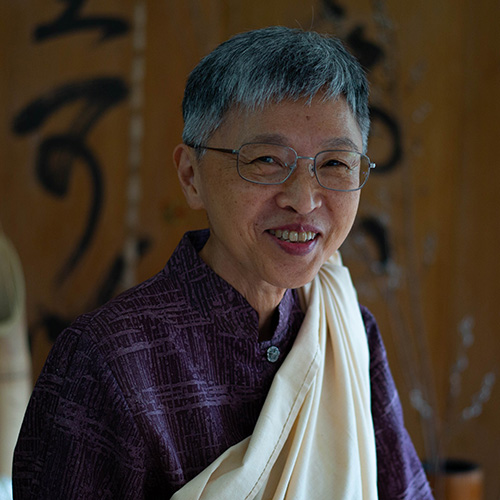
Pastor Jacqueline K. Duhart (pronouns – she, her, they, them) serves as the Director of Spiritual Care. She holds a M.Div. from Starr King School for the Ministry alongside a Certificate of Spiritual Direction from the Interfaith Chaplaincy Institute (Berkeley, CA) and a Master of Science in Social Work (MSSW) form the University of Texas – Arlington, Texas. She also serves our shared world as a Spiritual Director. June 2019, Pastor Jacqueline retired from parish ministry. For ten years she served in various ministry positions at the First Unitarian Church of Oakland; the last three years as their called full-time parish/interim minister. This call proved to be one of the most rewarding and meaningful ministries positions she has ever held.
Pastor Jacqueline is retired from the United States Air Force in 2000. During her 21 years of honorable service as a clinical social worker, she and her family managed many difficult separations to include her deployment in Oman during the Gulf War. Other career highlights include eight years of chaplaincy at the Federal Corrections Institute, Dublin CA, 5 years at the American Friends Service Committee advocating to end the death penalty, and a private practice in Anchorage, AK. As a licensed clinical social worker, she supervised masters level interns and conducted Critical Stress Debriefings with the Anchorage Fire Department. These experiences honed her capacity to be with the sorrows, joys and mysteries of life while living with bright hope. To read more about Pastor Jacqueline’s philosophies on spiritual direction/spiritual care, please click here.
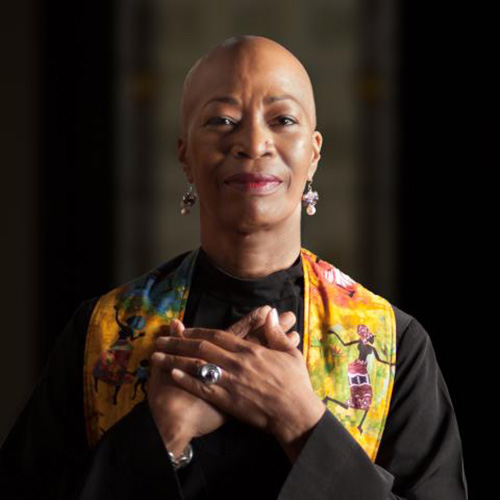
Larry Norris, PhD, studied biopsychology and cognitive science as an undergraduate at the University of Michigan, and defended his doctoral dissertation at the California Institute of Integral Studies (CIIS) in San Francisco. His dissertation reviewed archived ayahuasca experience reports to identify transformational archetypes and insights that could help inform developing models of integration (meaning-making). Larry is the co-founder and executive director of Entheogenic Research, Integration, and Education (ERIE) a 501(c)(3) nonprofit located in the San Francisco Bay Area. ERIE is dedicated to the development of community education, research, and integration models related to entheogens. Larry is also a co-founder and board member of Decriminalize Nature (DN), which sprouted from Oakland in 2019. He advocates for the unalienable right to develop one’s own relationship with Nature and aims to support efforts to decriminalize entheogenic plants and fungi (e.g., ayahuasca, iboga, cacti, mushrooms). Larry is DN’s national outreach director, and supports many cities and states across the USA and internationally who are seeking to propose similar legislation.
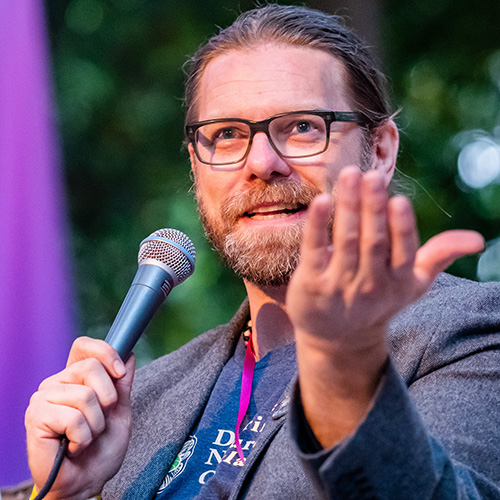
Tovis Page is a Unitarian Universalist minister with a calling to both community and congregational ministries. She envisions a future in which UU congregations are connected nodes of transformation in the wider web of regenerative, life-sustaining change. Since 2018, she has served on the leadership team of the Peninsula Solidarity Cohort, a network of over thirty religious and spiritual leaders from diverse traditions working for justice, equity and belonging in San Mateo County. Ordained in 2023 by the Unitarian Universalist Fellowship of Redwood City, Tovis recently completed a 2.5 year contract with the Unitarian Universalists of San Mateo. She has a Master’s of Arts in Social Change from Starr King, a Master’s of Theological Studies form Harvard Divinity School, and a PhD in Religion, Gender and Culture from Harvard University. She has a background in Vipassana meditation practice and completed a yearlong course in Buddhist chaplaincy before starting her UU training. She lives on the Peninsula with her spouse, 2 teenagers and various furry, scaly and feathered kin.
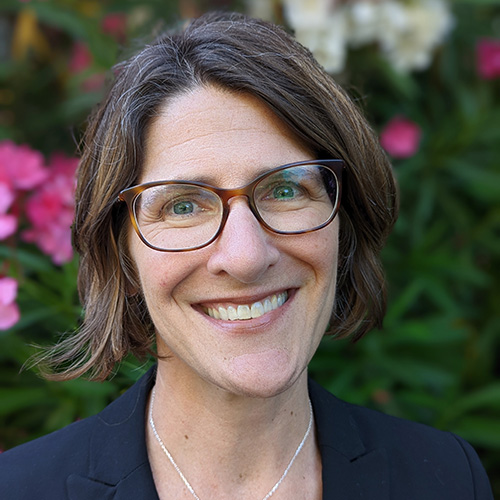
For over 25 years, Mari Rose Taruc has organized environmental justice campaigns for clean air, affordable housing, renewable energy and climate solutions in local, state, national and international arenas. She has launched and run major formations under the Southwest Network for Environmental and Economic Justice, Asian Pacific Environmental Network, Filipino/American Coalition for Environmental Solidarity, California Environmental Justice Alliance, and Reclaim Our Power: Utility Justice Campaign, including to ensure that multibillion-dollar California climate programs benefit disadvantaged communities. Setting roots in Oakland CA, she co-founded Eastlake United for Justice– a neighborhood group fighting gentrification, promoting affordable housing, and redefining community safety. Her life force is sharpened by Rinzai Zen Buddhism, including through kado flower arranging practice.
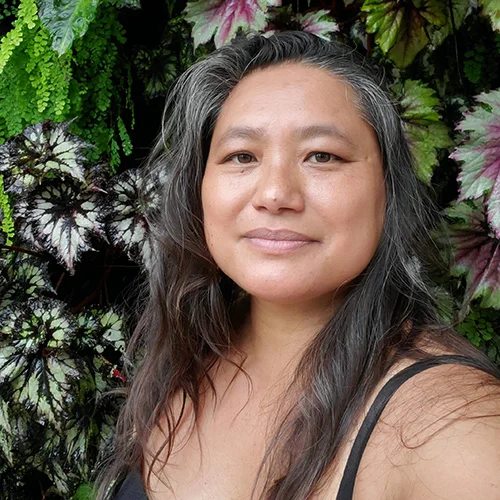
Rev. Dr. Samantha Lynne Wilson is a Unitarian Universalist minister, community psychologist, and restorative practitioner. She works as a UUA Conflict Engagement Coach as well as a restorative practitioner in private practice, partnering directly with congregations and communities navigating misconduct, conflict, and harm in crisis, as well as short-term and multi-year processes. She facilitates in collaboration with grassroots restorative justice organizations focused on community-based approaches to sexual and violent harms, such as the Oakland-based Ahimsa Collective and Richmond-based Collective Healing and Transformation (CHAT) Project. Samantha brings over a decade of direct experience in conflict engagement and restorative justice facilitation, having served as a facilitator to individuals, families, schools, congregations, and coalitions, as well as in prisons, through victim-offender dialogues, and as part of justice movements.
Samantha’s doctoral research in Community Psychology focuses on organizational culture-building and the practices of organizations and movements designing for and embodying a specific way of being, particularly organizations at the intersections of personal transformation and political action. Her theoretical work examines identity development theory from the perspective of interdependent selves-in-relation, and the psychological and social implications of these identities of interdependence for community culture-building and movement making in organizations and congregations.
